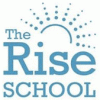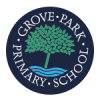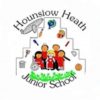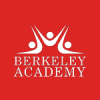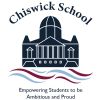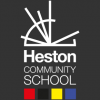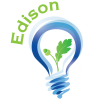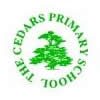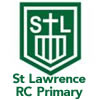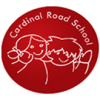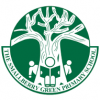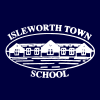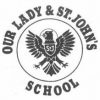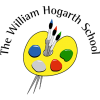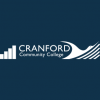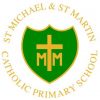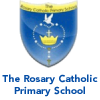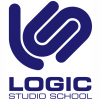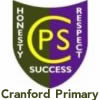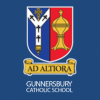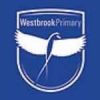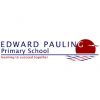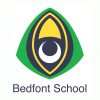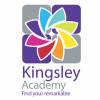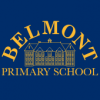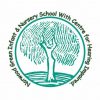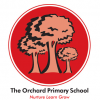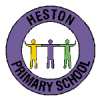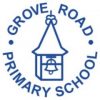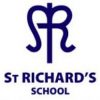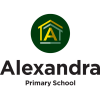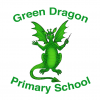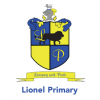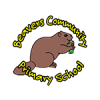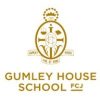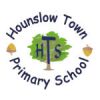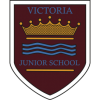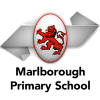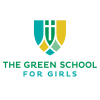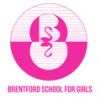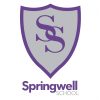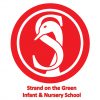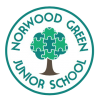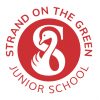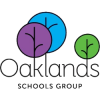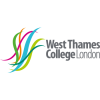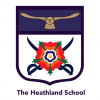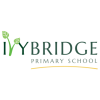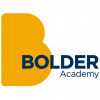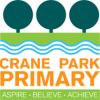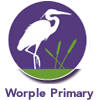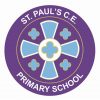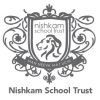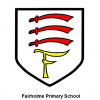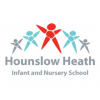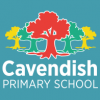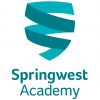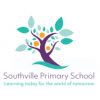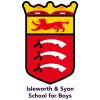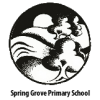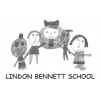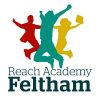Dear Subject Leader / Teacher / Teaching Assistant,
Welcome to the HEP Primary Science home page. On this page you will find a range of resources and information to support you if you are the subject leader for Science at your school and/or a classroom teacher / teaching assistant looking for advice and guidance to support your lesson planning.
One of the key aims of this resource is to ensure that pupils learn to be scientists as opposed to doing science. During their time at primary school, they ought to be developing the skills and competencies to ‘think and act’ as a young scientist.
The national curriculum aims for Science aims to ensure that all pupils:
- develop scientific knowledge and conceptual understanding through the specific disciplines of biology, chemistry and physics
- develop understanding of the nature, processes and methods of science through different types of science enquiries that help them to answer scientific questions about the world around them
- are equipped with the scientific knowledge required to understand the uses and implications of science, today and for the future.
In order to achieve this, pupils need to work as successful scientists. This requires them to have the necessary skills for scientific enquiry. These skills should build upon opportunities for them to play, explore, create and engage in active learning.
It is important that there is a progression of the scientific skills that pupils are to develop throughout school. This ensures that they are not simply repeating the same skills again and again. As your pupils progress through school, they need to be able to use more challenging skills progressively to tackle the scientific problems they encounter.
To guarantee this happens, enquiry skills need to be carefully planned for.
Science SL Resource pack September 2023
Subject Self-evaluation template
Science Subject Leader Workbook September 2021
For an editable version of the subject leader workbook, please contact info@hounsloweducationpartnership.co.uk
To support this please look at this excellent resource Working Scientifically in the Primary Classroom. This has been produced by The Centre for Industry: Education Collaboration.
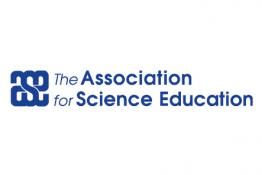 The Association of Science Education
The Association of Science Education
The key resource for the teaching of science in primary (and secondary) schools is the Association of Science Education (ASE).
(Membership for: School £130 / annum - Individual £90 / annum)
Primary School Membership includes:
- Primary Science magazine (Primary Science (PS) is a themed journal for all those involved in primary science education for children aged 3-12, including primary teachers, primary science co-ordinators, primary schools, local authority advisers and inspectors and science teacher trainers and trainees. It is a forum for sharing information and ideas and includes articles about teaching, learning and assessing science. PS aims to spread good practice in primary science teaching and to help practitioners improve their background science knowledge and understanding and to keep up to date with curriculum developments and new resources. It provides an independent national and international perspective on primary science education.)
- Primary Science Leaders’ Survival Guide (online resource)
- 150+ Primary upd8 resources
(Primary upd8 is a series of high-quality, engaging science activities for 5-11 year olds. Each activity is based on a current event or an everyday life context to help you make your science lessons more enjoyable and links to scientific enquiry skills. The activities support literacy and numeracy work and are designed to take advantage of interactive whiteboards. Each activity comes as an editable PowerPoint presentation, with plenty of colourful cartoon illustrations and interactive elements to grab children’s attention.) - Members only PLAN resources
(The PLAN primary science assessment resources – www.planassessment.com – have been produced to help schools effectively plan and assess the science National Curriculum (England). - Multiple staff log ins
- Up to 50% off in the ASE bookshop
STEM: Teaching and learning of science, technology, engineering and mathematics (STEM subjects)
This website houses thousands of free-to-access, quality assured resources to support the teaching and learning of science, technology, engineering and mathematics (STEM subjects)
Primary science resources
A. The key to engaging primary science
https://www.stem.org.uk/news-and-views/opinions/key-engaging-primary-science
‘Social learning’, questioning and discussion are key to supporting primary pupils to develop their understanding of the world around them, so in our online course Teaching Primary Science: Getting Started we practice what we preach.
B. Primary Resource Packages
https://www.stem.org.uk/primary-science
Our primary science resource packages provide a useful starting point for teachers in planning and delivering science lessons or in supplementing a teacher’s own planning.
Topics
Resources are organised into topic area and year group and include many opportunities for working scientifically. They provide tips for teachers, highlight common misconceptions and offer further suggestions for use in class. Topics range from: Plants, Rocks, Animals including humans; Forces and magnets; Materials and their properties; Light; Electricity; and Living things and their habitats.Each theme has a number of associated topics each which includes: lesson plans, activities and video clips.
There is an additional set of resources to support cross-curricular topics for KS1 and KS2: https://www.stem.org.uk/cross-curricular-topics-resources
C. Teaching Science through Stories
https://www.stem.org.uk/teaching-science-through-stories
Children’s stories provide a great context for learning science. Explore our resource packages based around popular children’s books and discover the science hidden in a book. Resources include book summaries, hints and tips for teaching the science and further stories on a similar theme.
- KS1 examples include: Jack and the Beanstalk; Little Red Riding Hood; and One Year with Kipper.
- LKS2 examples include: The Iron Man; The Pebble in my Pocket; and The Vanishing Rainforest.
- UKS2 examples include: Goodnight Mr Tom; Itch; and Kensuke’s Kingdom.
D: Moving smoothly from primary to secondary science
https://www.stem.org.uk/news-and-views/opinions/moving-smoothly-primary-secondary-science
Moving from primary school to secondary school is a very exciting but sometimes daunting experience for many students. When the transition from Year 6 to Year 7 is right, we see students get it right; we see students in Year 7 who are engaged, interested and enthusiastic about science; students who are keen to learn and at the same time continue to make progress in the subject.
This includes The Polar Explorer Y6-Y7 Transition Project. This resource provides a framework for teachers to run a transition project with Year 6 pupils to help them with the move from primary to secondary school. The project is based on the theme of Polar Exploration and aims to enable pupils to use and develop a range of STEM skills that they will ultimately need to become independent learners in the STEM subjects. The resource provides a timetable for the process and a suggested series of activities for children to get them ready for the transition to Year 7. It contains several different parts involving both primary and secondary staff which should take place over a number of lessons. Careful planning and good communication between the primary and secondary staff will be the key to running a successful project.
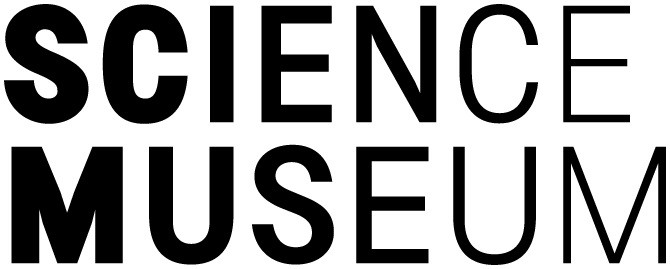 Science Museum
Science Museum
www.sciencemuseum.org.uk
The Science Museum Learning area holds an unparalleled collection of objects. is just the start.
Via their website, you can: plan an educational visit to the Science Museum; search for learning resources to use in the classroom or at home; and look at their CPD opportunities for teachers.
- Learning Resources:
https://learning-resources.sciencemuseum.org.uk/resources/?keystage=ks1+ks2&subject=science - Games and APPs
https://www.sciencemuseum.org.uk/games-and-apps - Teachers CPD and Events
https://www.sciencemuseum.org.uk/learning/teacher-cpd-and-events - Outreach we visit you
https://www.sciencemuseum.org.uk/learning/outreach-we-visit-you
 Primary Science Quality Mark (PSQM)
Primary Science Quality Mark (PSQM)
http://www.psqm.org.uk/what-is-psqm
Primary Science Quality Mark is a year-long CPD programme that helps schools to achieve a quality mark, whether science within the school has been a low profile for a while or the school wants to improve the provision further. It focuses on developing effective, confident science leadership for whole school impact on science teaching and learning.
PSQM:
- Enables science subject leaders to develop and articulate a clear intent and aspirational vision for science. The process of achieving a PSQM raises the profile and quality of science across the whole school.
- Supports subject leaders to effectively implement a curriculum for science that is informed by research evidence and best practice data. Working with an expert hub leader, subject leaders evaluate current provision for science and put in place a development cycle that leads to sustained progress in science across the school.
- Ensures strong and positive impact: Children make good progress, building and consolidating their knowledge and skills, developing positive attitudes about science and its value to their lives and globally. Teachers and children enjoy their science lessons.
The following link takes you to a number of case studies from schools that have successfully achieved the PSQM.
a) develop scientific knowledge and conceptual understanding through the specific disciplines of biology, chemistry and physics
How do I lead primary science?
https://www.stem.org.uk/cpd/456270/help-how-do-i-lead-primary-science
Teaching primary science: getting started
https://www.stem.org.uk/cpd/ondemand/411350/teaching-primary-science-getting-started
This is a three-week online course, during which you will look at:
- managing practical science in the primary classroom
- resourcing practical science easily
- identifying types of enquiry
- embedding practical science in planning
- exploring activities which spark curiosity
- developing thinking and reasoning skills
b) develop understanding of the nature, processes and methods of science through different types of science enquiries that help them to answer scientific questions about the world around them
Teaching primary science: getting started
https://www.stem.org.uk/cpd/ondemand/411350/teaching-primary-science-getting-started
Scientific enquiry
https://www.ase.org.uk/resources/search/ages/0-5-12/topic/science-enquiry-48
Resources for EYFS / KS1 / KS2
https://www.ase.org.uk/resources
c) are equipped with the scientific knowledge required to understand the uses and implications of science, today and for the future.
https://www.ase.org.uk/resources
Working scientifically in the primary classroom – a progression
This supports aim 2 of the NC for Science:
- develop understanding of the nature, processes and methods of science through different types of science enquiries that help them to answer scientific questions about the world around them
(This is a re-working of the original document ‘Working Scientifically in the Primary Classroom’ produced by ‘Centre for Industry: Education Collaboration’, and the original is available from: http://www.ciec.org.uk/resources/working-scientifically.html)
|
KS1 |
Lower KS 2 |
Upper KS 2 |
| Explore the world around them and raise their own simple questions | Raise their own relevant questions about the world around them | Use their science experiences to explore ideas and raise different kinds of questions |
| Experience different types of science enquiries, including practical activities | Should be given a range of scientific experiences including different types of science enquiries to answer questions | Talk about how scientific ideas have developed over time |
| Begin to recognise different ways in which they might answer scientific questions | Start to make their own decisions about the most appropriate type of scientific enquiry they might use to answer questions | Select and plan the most appropriate type of scientific enquiry to use to answer scientific questions |
| Carry out simple tests | Set up simple practical enquiries, comparative and fair tests Recognise when a simple fair test is necessary and help to decide how to set it up | Recognise when and how to set up comparative and fair tests and explain which variables need to be controlled and why |
| Use simple features to compare objects, materials and living things and, with help, decide how to sort and group them (identifying and classifying) | Talk about criteria for grouping, sorting and classifying; and use simple keys | Use and develop keys and other information records to identify, classify and describe living things and materials, and identify patterns that might be found in the natural environment |
| Ask people questions and use simple secondary sources to find answers | Recognise when and how secondary sources might help them to answer questions that cannot be answered through practical investigations | Recognise which secondary sources will be most useful to re- search their ideas and begin to separate opinion from fact |
| Observe closely using simple equipment with help, observe changes over time | Make systematic and careful observations Help to make decisions about what observations to make, how long to make them for and the type of simple equipment that might be used |
Make their own decisions about what observations to make, what measurements to use and how long to make them for |
| With guidance, they should begin to notice patterns and relationships | Begin to look for naturally occurring patterns and relationships and decide what data to collect to identify them | Look for different causal relationships in their data and identify evidence that refutes or supports their ideas |
| Use simple measurements and equipment (e.g. hand lenses, egg timers) to gather data | Take accurate measurements using standard units learn how to use a range of (new) equipment, such as data loggers / thermometers appropriately |
Choose the most appropriate equipment to make measurements with increasing precision and explain how to use it accurately. Take repeat measurements where appropriate. |
| Record simple data | Collect and record data from their own observations and measurements in a variety of ways: notes, bar charts and tables, standard units, drawings, labelled diagrams, keys and help to make decisions about how to analyse this data | Decide how to record data and results of increasing complexity from a choice of familiar approaches: scientific diagrams and labels, classification keys, tables, scatter graphs, bar and line graphs |
| Use their observations and ideas to suggest answers to questions Talk about what they have found out and how they found it out |
With help, pupils should look for changes, patterns, similarities and differences in their data in order to draw simple conclusions and answer questions | Identify scientific evidence that has been used to support or refute ideas or arguments |
| With help, they should record and communicate their findings in a range of ways and begin to use simple scientific language | Use relevant simple scientific language to discuss their ideas and communicate their findings in ways that are appropriate for different audiences, including oral and written explanations, displays or presentations of results and conclusions | Use relevant scientific language and illustrations to discuss, communicate and justify their scientific ideas, use oral and written forms such as displays and other presentations to report conclusions, causal relationships and explanations of degree of trust in results |
| With support, they should identify new questions arising from the data, making predictions for new values within or beyond the data they have collected and finding ways of improving what they have already done. | Use their results to make predictions and identify when further observations, comparative and fair tests might be needed |
Ofsted has published the second in a series of reviews into different subjects across the curriculum.
Click on the link below to read the full science review.
If you have used or know of any good resources to share with other subject leaders or teachers in Hounslow, please email them to Nikola Standing – n.standing@hounsloweducationpartnership.co.uk






